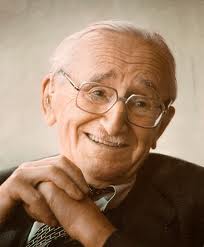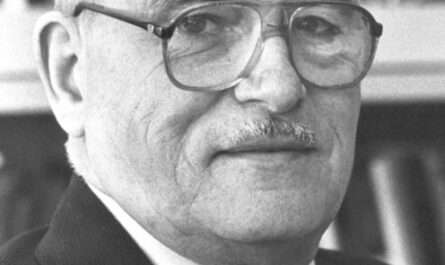Neoclassical economics is the most dominant school of thought undeniably. They advocate free market system and their theories have given a message that people are rational and the market is efficient. Many disagree with this and consider that they can question the market system by rebutting the neoclassical.
Neoclassical have taken mathematics very seriously for their theories. But, to make use of mathematics they had to make certain assumptions too. Even though these assumptions made their theory static, they were still able to show what they aimed for i.e., efficiency of the market.
But, they have been heavily criticized too, either for their use of mathematics or for their ignorance of real human behavior. Neoclassical indeed has severe shortcomings but what many forget is that neoclassical being wrong doesn’t make the market system wrong. What neoclassical attempted to portray the feature of the market system isn’t solely the one but there are more important advantages of a market system that is ignored by them.
For example, how can a theory of free market even ignore an essential feature of entrepreneurship? Neoclassical is entrepreneurless and this is something they brought to themselves. In their obsession with showing market efficiency and mathematical modeling, they forgot realism and other qualities of the market. It is undeniable that the market, with the so-called invisible hand of it is most efficient in allocating scarce resources. Neoclassical isn’t wrong there but the problem with it is the narrow scope in its framework.
Hayek in his 1945 iconic paper said knowledge is dispersed in society and every individual possesses unique knowledge of time and place that can be tacit in nature and cannot be recorded or expressed in words or numbers. In the 1937 paper, he said people have subjective knowledge within themselves that interpret the objective facts in front of them, so there are not just objective facts but subjective knowledge of individuals too that differ from one another and they interpret in different ways.
Hayek not only debunked the central planning of socialism or market socialism but gave many insights. One of them leads to the foundation of Information Economics. Neoclassical took this insight from Hayek too and it is noticeable when there is the assumption of “perfect knowledge” in their models which is also the most attacked assumption of the neoclassical model because the critique of the market system claims that people have imperfect knowledge in the real world and hence they won’t be enough close to perfect or rational to make the market system as efficient as it is claimed.
But, interestingly Hayek himself said that the knowledge possessed by people is imperfect. Hayek showed was the market is the best system and justified because people are rather imperfect! People don’t have perfect knowledge but with the market process, they keep improving their knowledge over time. A person working in a factory on the first day would be different from what he would become after 100 days of working, he gains more knowledge. Also, in the economy, there is more information available than earlier, today we have more information than people living 30 years back.
What Hayek said fits with the real world. He was a critique of competition theories of mainstream economics too. He said competition should be shown to improve people’s knowledge and not that people have perfect knowledge already in competition. Marketing theorists have also claimed that competition improves or updates the preferences of consumers as they are introduced to something new over time. But economics would rather show that consumers already know about their preferences “perfectly’.
This is because the aim of economics has been restricted to only allocation problems. The neoclassical neglects to portray the market process. Israel Kirzner said that the neoclassical theories are equilibrium theories. Equilibrium is an ideal stage where no more improvement is needed. It is when people have perfect knowledge and hence what they expect does happen too. However, Hayek and Kirzner focus on disequilibrium and show how the market process reaches equilibrium. But, probably the market goes towards that stage but will never reach there.
Even those who claim there is “asymmetric information”, talk about searching not discovering new information, we know what we have to search but in case of discovery, one doesn’t know the existing opportunities and material in existence. It can be a consumer updating his preferences or a firm improving their production method or product. In many ways, people are going to have imperfect knowledge. It isn’t about the “costliness” of information essentially but about dispersal. What is essential is for them to keep improving themselves with trial and error.
Yes, the market system is the most efficient as compared to other alternatives but the market system keeps developing its efficiency too. With the free flow of knowledge, there are more ways found for development. Hayek said competition is a “discovery procedure” and to justify it further Kirzner brought his concept of entrepreneurship. He said an entrepreneur is one who with his local knowledge is “alert” to the existing opportunities that he discovers. These opportunities aren’t known to people but exist in front of them and are discovered by the entrepreneur as he/she is “alert”. The entrepreneurship in market system leads it toward equilibrium. Schumpeter with a different approach showed that the market evolves with innovation and creative destruction.
Also, it isn’t only about knowledge that Hayek was talking about but he also was one to highlight the essence of expectations. As there is trial and error involved people keep improving their knowledge and also their expectations over time. If things don’t go as with one’s expectations, then the individual would improve their expectations by gaining more information. In the process of that they discover more opportunities.
Even though the market is uncertain, the one deciding with the highest risk is also the one gaining more. Why do firm owners, entrepreneurs, or investors get the highest share of profit as compared to others? It is because they are taking risks. If that is removed, then there is no point for them to take profit. It can be true that higher risk-takers can make decisions from their emotions or some sort of “animal spirits” but this makes their task more difficult and the situation of the market asks them to make decisions as much rationally as possible. The fact that their task is difficult is also giving them the most return when they succeed. But, if in such cases government intervenes and starts bailing out the losers then there is no end to the cost.
Over time people will improve their actions and expectations seeing the mistakes they made earlier. This won’t happen if the government restricts the uncertainty in the market, this wouldn’t allow society to introduce new opportunities and innovation and there wouldn’t be long-run stability.
The phenomena of the market process are not based on perfection in the world but rather a process towards that. It doesn’t say the market is needed because people are perfect but imperfect just like in the real world. It is based on the phenomenon that people even though they have their flaws can make improvements to it. Neoclassical doesn’t include that in their circle. Although this is their big shortcoming, what they offer is not regarded as useless here. The article doesn’t undermine the contribution of neoclassical or equilibrium theorists but rather conveys that there is more to the market mechanism and more to analysis beyond equilibrium and allocation.
Bibliography
Boettke, P. J. (2008). Where did economics go wrong? Modern economics as a flight from reality. Critical Review, 11-64.
Hayek, F. A. (1948). Individualism and Economic Order. The University of Chicago Press.
Hayek, F. A. (1960). The Constitution of Liberty. The University of Chicago Press.
Hayek, F. A. (2002). Competition as a Discovery Procedure. The Quarterly Journal of Economics, 9-23.
Kirzner, I. (1979). Perception, Opportunity, and Profit: Studies in the Theory of Entrepreneurship. The University of Chicago Press.
Kirzner, I. (1997). Entrepreneurial Discovery and the Competitive Market Process: An Austrian Approach. Journal of Economic Literature,



